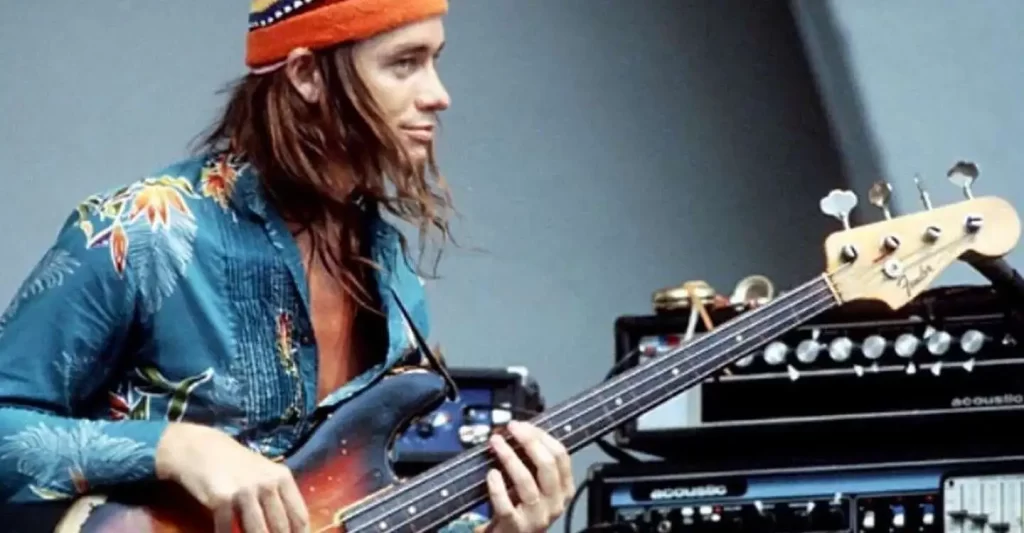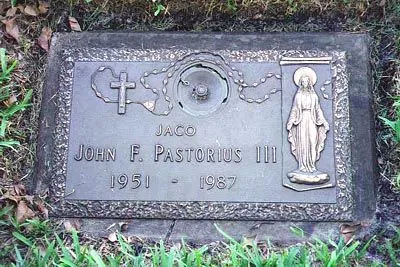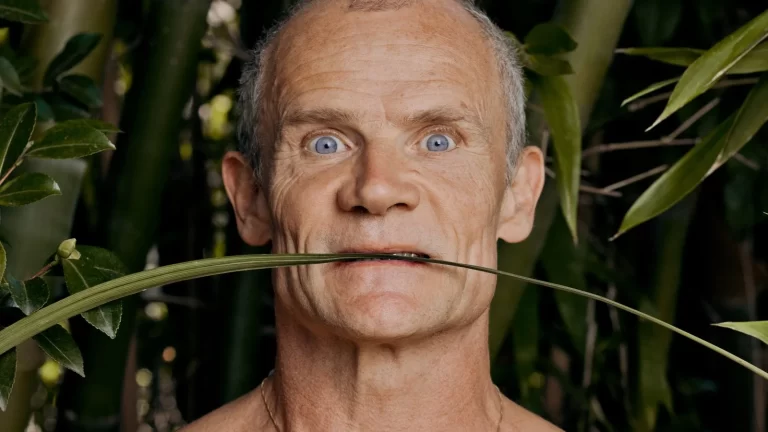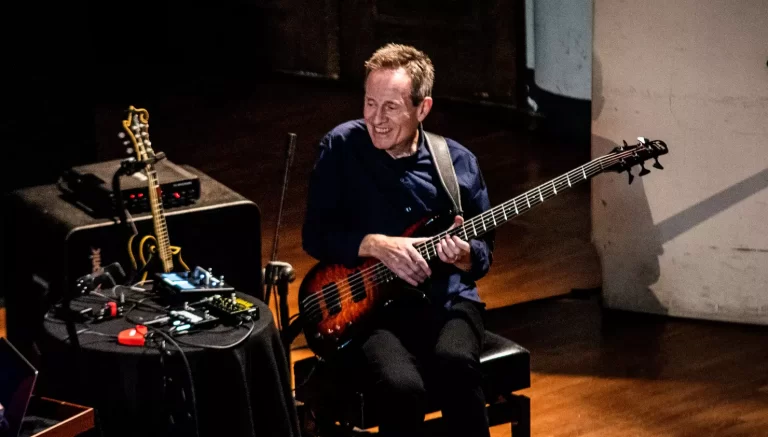Jaco Pastorius Short Bio
Jaco Pastorius is perhaps one of the most world-famous and recognizable bass players ever. Although many people get to know the bass guitar through rock music and initially go crazy about Robert Trujillo or Flea, there comes a point when you realize you want to learn more. Then you find jazz and fusion and start listening to Jaco Pastorius. When I first heard “Portrait of Tracy” on cassette, I didn’t even realize it was a bass guitar…
Jaco was the first musician to start doing something never done before. So, he removed the frets from his Jazz Bass Fender to achieve a unique sound. Due to his innovative style of playing with an abundance of 16th notes, harmonics, and unexpected harmonies, Jaco Pastorius developed a unique style and became a recognized innovator and musical genius during his lifetime. Nowadays, we say “Pastorius” when we want to describe something similar in style and sound, so this name has become a household word.
…Jaco Pastorius influenced a lot of jazz, funk, and rock musicians and heavy metal players… Jaco was a multi-genre phenomenon… deep and wide.
Robert Trujillo
Short Bio

Jaco Pastorius was born in Norristown, Pennsylvania, in 1951. Being the son of a musician, Jaco became interested in music early on, especially drums. When Jaco was 12, he bought a small drum kit for the money he earned by delivering newspapers. Later, due to a wrist injury received while playing football and a coincidence of circumstances (the previous bassist suddenly decided to move), Jaco Pastorius took up the bass in the soul-cover band Los Ollas Brass. Jaco again invested his money in music and bought a Jazz Bass Fender, later known as BASS OF DOOM.
Not knowing how to read music, Jaco Pastorius, however, was actively developing his talent. The guy borrowed a tape recorder from his friend to record his version of “The Chicken.” He sent the recording to John Coltrane’s widow, Alice, and received an approving, inspiring response from her. At that point in his life, he met Tracy Lee, the girl he was in love with, who became his first wife, and thanks to whom we have the composition “Portrait of Tracy.”

The next stage was work in the R’n’B trio Woodchuck and Wayne Cochran and the C.C. Riders, where Jaco spent five months learning to read notes and make arrangements and almost lived with a bass guitar in his hands.
The Best Bass Player on Earth
Jaco Pastorius’s career was evolving rapidly. He worked hard and developed as a musician, collaborating with famous jazz musicians, including Herbie Hancock, Ian Hunter, and Pat Matheny.
In 1975, Jaco joined the already famous Weather Report. Pastorius worked with the fusion band until 1981. During that time, he demonstrated the full power of his talent as a bass guitarist, composer, and showman. At the same time, Jaco continued to perform as a session musician.

Pastorius released “Jaco Pastorius,” his debut solo album, in 1976. The world changed forever. In 1977, when Jaco was 25, he received 2 Grammy nominations as “Best Jazz Solo” and “Best Group Performance.
In 1979, he divorced Tracy Lee and married his girlfriend, Ingrid Horn-Muller. He recorded “8:30” with Weather Report and toured as part of the Trio of Doom.
By 1980, Jaco’s behavior became increasingly unstable due to constant creative overwork, personal problems, and drinking too much alcohol. The Weather Report drummer’s father, who was a psychiatrist, diagnosed the musician with manic depressive psychosis.
Tragic Ending of Jaco Pastorius
In the early 1980s, Jaco moved to New York, whose musical world was less familiar to him than Florida’s. The use of alcohol and drugs became almost uncontrollable.
From 1982 to 1984, the situation continued to worsen. Riots during concerts and nervous breakdowns made playing music and touring almost impossible.
1986. Jaco was leading the lifestyle of a tramp. Someone stole his unattended Bass of Doom… He lost his apartment. Many of his friends abandoned him. He was trying to be treated in a psychiatric clinic but wasn’t happy with the effect of lithium drugs…
1987. On the morning of September 12, Jaco went to the bar. During an altercation with a manager who had a black belt in karate, he received a severe traumatic brain injury with a cerebral hemorrhage. On September 19, they transferred Jaco Pastorius to artificial ventilation. On September 21, by the decision of his family, he was disconnected from life support and died three hours later without regaining consciousness. Tracy Lee was holding his hand. He was 35 years old.

Afterword
Jaco Pastorius had a short but incredibly intense creative career. One cannot overstate his legacy. I won’t even list the musicians and musical bands he influenced. Numerous musicians chose the bass inspired by his work and found their signature style, trying to imitate Pastorius’s play.
Jaco Pastorius made the world see the potential of the bass guitar and finally changed its perception of the instrument. His music reflected his inner world, his feelings, and his thoughts. It is a canvas, a picture with all possible colors and shades of life. Jaco is a music impressionist. No matter what music you like best and what you play… If you are a musician or a bass player, if you are still not familiar with his work, I would like you to take at least a little time to listen to his bass parts and try to understand the phenomenon of Jaco Pastorius.



A breathtaking documentary about Jaco Pastorius, “Jaco,” was released on November 22, 2014. The movie contains interviews with musicians who were lucky enough to work with Jaco, memories of those whose lives he influenced, and even a lot of exciting biographical moments. That’s a must-watch for all bassists. At the request of the copyright holders, YouTube removed the video from its platform, but I think you know what to do in this situation. Here is the trailer. One of the producers and screenwriters of the movie is Robert Trujillo, who has repeatedly spoken about how much Pastorius influenced him.

Hey, fellow bassists and musicians overall!
I’m nothing more than just bass player and enthusiastic blogger. Feel free to ask any questions in the comments.
Huge thanks for all crazy people who supports this resource. Keep groovin’!







